Budyeri kamaru (hello!) from Eora Country,
We’ve had a jam-packed start to 2023 at Media Diversity Australia.
Our newsletter is now going out quarterly, so we can focus on our expanding suite of impactful programs. We post regularly to social media, so follow us on LinkedIn, Instagram, Facebook and Twitter for events, opportunities and announcements.
We’ve been busy delivering our Summer Fellowships, Women of Colour Mentorships and more. As well as onboarding newsrooms who have joined up to our media membership model (welcome NewsCorp Australia, The Conversation Group and Private Media Group), and hosting statewide chapter events, including last month in the ACT with award-winning journalist, Peter Greste.
We were delighted to be invited to participate in the Australian Press Council’s Sydney Round Table on ‘Updating Advisory Guideline on Reporting of Race’ as well the Australian Communications and Media Authority (ACMA) consultation on a ‘news measurement framework’. We will also be presenting at the upcoming Australian Media Literacy Summit.
A highlight on our calendar was welcoming MDA’s Founder, Isabel Lo, back to Sydney from New York City for our annual Strategy Day. A heartfelt thank you to those who have been donating to our cause in Q1.
We have a big year planned, so watch this space!
Happy reading,
Mariam Veiszadeh (CEO) and the Media Diversity Team
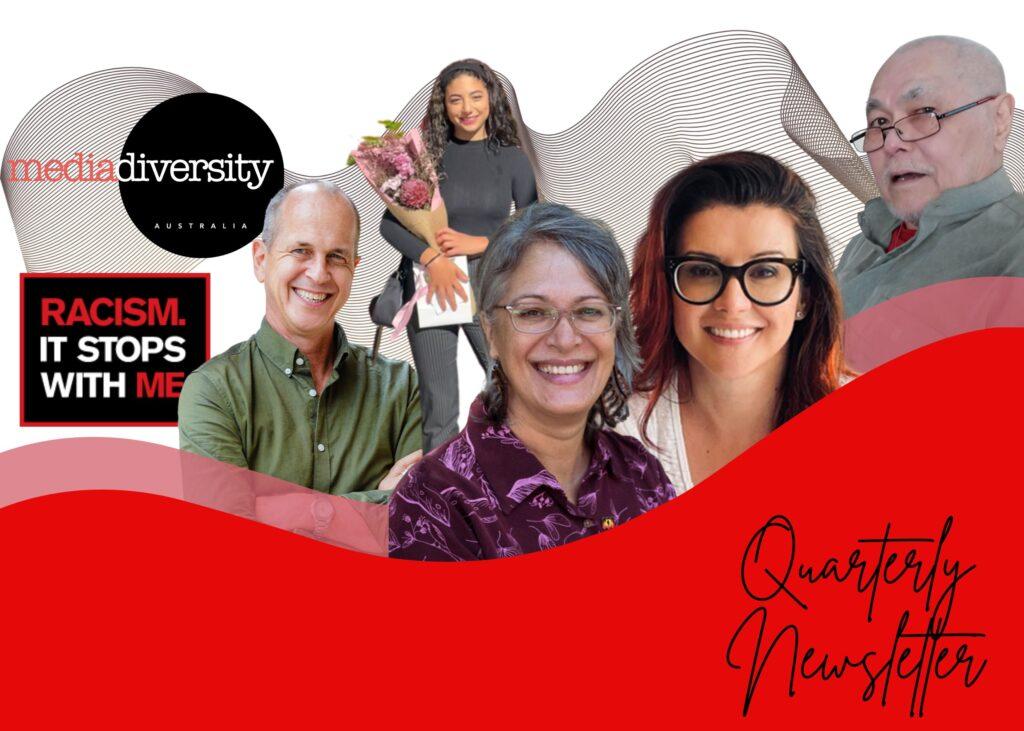
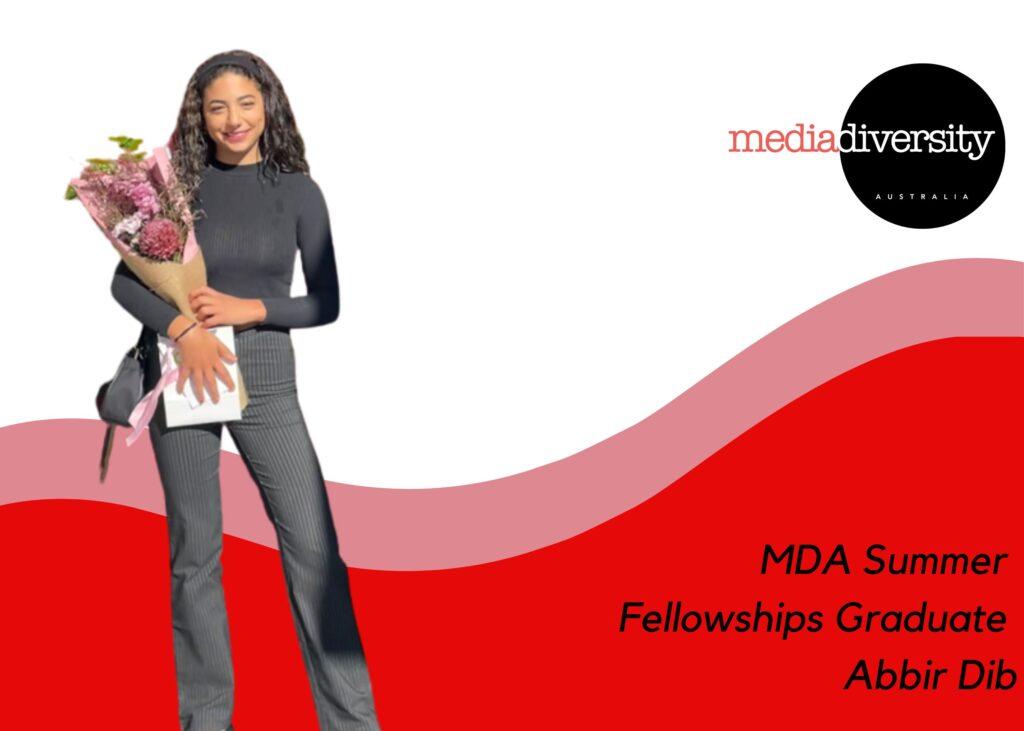
After completing our inaugural Summer Fellowships (formerly Internships) program with Nine News Melbourne in 2020, Abbir continued working with the newsroom. She was recently offered her dream role as a journalist, social producer and opinion writer for The Age, another Fairfax-owned platform.
This is no easy feat. It was tiring, but I took every opportunity to work hard and meet as many people as possible, both in the industry and out on the field. An internship is essentially one long interview. I was offered a position because I proved I could learn skills quickly and be a valuable asset to the team.
In my current role at The Age, I love the challenge of translating hard news to the growing world of social media. Innovation in journalism is an exciting thing.
I learnt quickly that no one is there to help you unless you have a good attitude. It’s quite sobering, but the onus was on me to show initiative and put aside nervousness. No one will wait for you to make it happen in your career. I also learnt that although senior journalists might be in the workforce, there’s always room for young, diverse perspectives. They’re very needed!
Contact young diverse journalists like myself if you feel things are getting tough. Sometimes I felt isolated or unsure if certain behaviour was normal, and it helps to have a community or people behind you that you trust to listen. And also, confidence doesn’t just belong to a certain type of journey; feel empowered in your strengths and voice.
–Selina Zhang (Summer Fellowships 2023) has been offered a role with Nine News Melbourne
–Anushri Sood (WOC Mentorships) has been hired as Interview Producer at Sky News
–Alicia Vrajlal (WOC Mentorships) has been promoted to Senior Culture Editor at Refinery29
–Tahnee Maxwell (Summer Fellowships 2023) has accepted a role with Hot 100 FM in Darwin
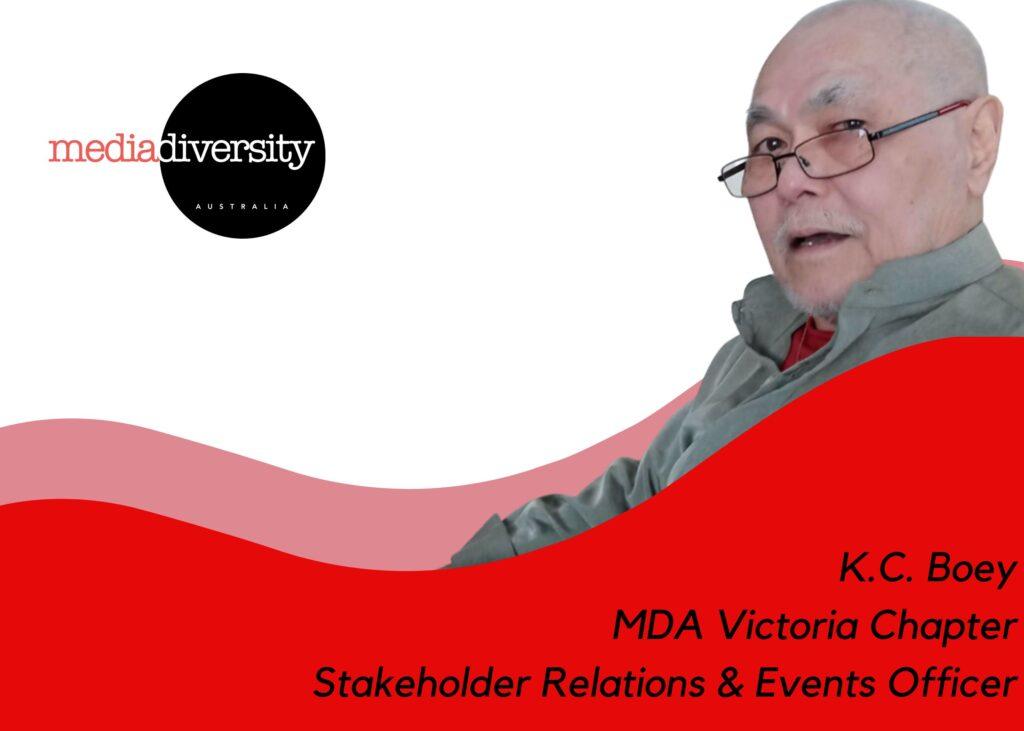
Born and raised in Malaysia and a Melbourne resident for over three decades, K.C. lives and works with diversity in his personal and professional life. As an international media veteran, he’s the former editor of Malay Mail, the first local English daily published during the colonial Federated Malay States, and journalist for The Age. K.C.’s interest in politics and culture saw him undertake further studies at Monash University. Driven by building cross-cultural bridges, his career has expanded into the policy space as an advocate for diversity, inclusion and equity.
Media everywhere ought to be the mirror of the people that it is the product of and which it ought to reflect. It is instructive that sections of the Australian media have felt the need for a representative voice in setting up MDA, whose annual report card of the media landscape is now in its second edition. The media dial is moving. It will take time.
As with all attempts at change, the earlier we set desirable outcomes, the better and quicker we can arrive at solutions. I ruminated over this question in a fantasy published in the Asia-Pacific Media Educator. In many ways, the answer is taken out of the hands of the media. Power is vested in the political economy of the day and commercial interests. Diversity and inclusion in the media are as beholden to these whims as they are in all domestic and international affairs and interests.
Read broadly. The 5Ws + H guide the structured coverage and presentation of any report, whether for a general audience or the specific interest of a medical patient, legal litigant or architectural client. The formula is helpful at the start of an assignment. Formulating questions to ask is critical in composing a coherent whole of the sum of the parts in an inquiry. The substance between the start and the end is informed by the inquisitive mind derived from knowing the subject matter through reading.
-VIC Chapter Co-Secretary Achol Arok joins SBS News as a cadet and is up for a Melbourne Press Club Quills Award for an ABC News story co-produced with Dan Ziffer.
-VIC Chapter Co-Chair Nassim Khadem was interviewed for the Business In Colour podcast.
-ACT Chapter member Soofia Tariq joins SBS News as Federal Political Reporter.
-NSW Chapter Disability Affairs Officer Briana Blackett has written an op-ed about media coverage of autism and the NDIS for Hireup.
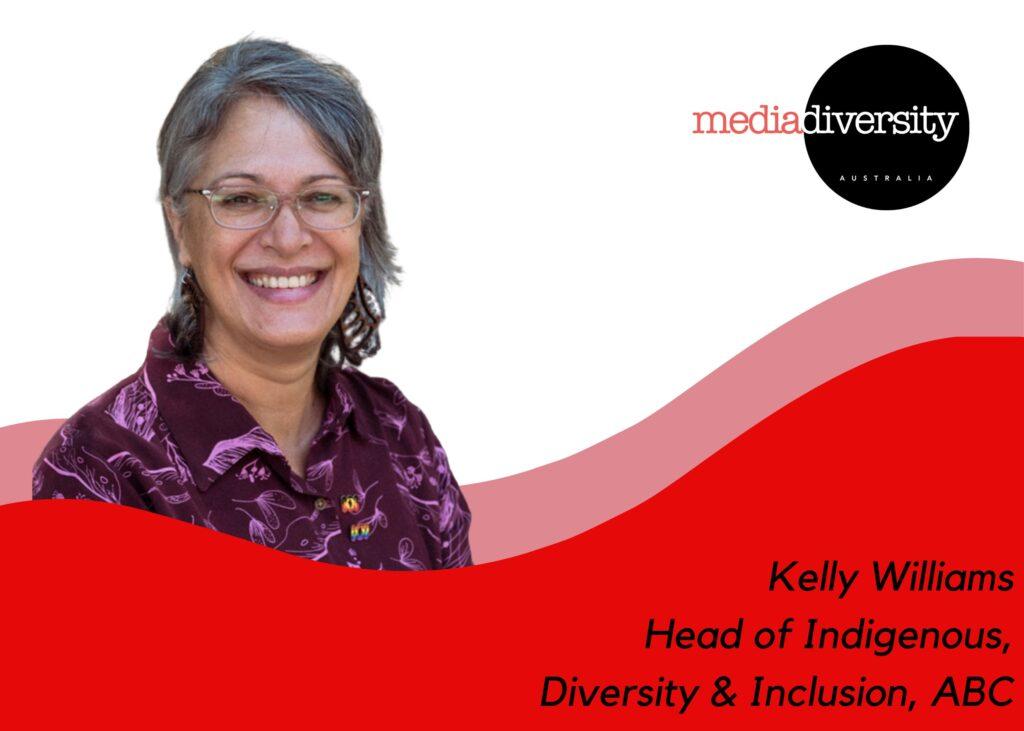
Kelly’s recent appointment as ABC’s Head of Indigenous, Diversity and Inclusion is an exciting step for the network. Having worked with the broadcaster for over 30 years, Kelly deeply understands talent management and media and is passionate about positively disrupting workplace culture.
There are so many. I had two children and spent a few years job-sharing, on fixed-term engagements, and as a casual employee while juggling work and childcare—just getting through that was a highlight. Still, also that juggling allowed me to work across the People & Culture, News and Regional & Local divisions. I’ve produced social and digital platforms for Australian Story, Landline and Back Roads, designed and built TV specials, co-ordinated three ABC Reconciliation Action Plans, established the Diversity Advocates Network, and am currently finetuning the ABC’s 2023-26 Diversity, Inclusion & Belonging plan. I’ve also driven strategic partnerships between ABC, First Nations Media Australia, and First Languages Australia. I couldn’t do that work without Bronwyn Purvis (Partnerships Lead, ABC News).
I get great satisfaction in working with others to drive change. It keeps me inspired. And there is real joy in having your children watch you as you do that work. They are men now and often tell me they are proud of what I do.
Put First Nations and culturally and linguistically diverse people in senior editorial and management positions. Media networks wouldn’t need to invest in resourcing programs on recruitment and retention if representation were at the top.
One of the easiest things to do is to ensure everyone is heard. If you are in a meeting and an Indigenous or diverse colleague hasn’t spoken, ask them to offer their opinion. And if their opinion adds something to the discussion, say that to everyone. You could also ensure that someone’s cultural authority is recognised during conversations about their communities. They may not be a senior leader, but they may have the cultural authority to inform a discussion about their community.
But further to that, don’t ask the First Nations or the culturally and linguistically diverse person in the room to speak for every community in the country or around the world when big issues hit the news. That has happened to me many times. I’m not a Black oracle. It makes me very uncomfortable to be put in that position.
I am so excited to work with MDA. It fits right in with my goal to create pathways into the ABC. I once purchased a painting during an Indigenous Staff Conference on the Gold Coast. For our community day, we went to the Jellurgal Aboriginal Cultural Centre. I saw a painting called ‘Women’s Business’, which had 20 beautiful brown women, all depicting different activities in a line of unity. That painting became my inspiration for the pathways I want to leave behind. I think ABC’s membership with MDA will create some of those pathways.
-New MDA Members: NewsCorp Australia, The Conversation Group and Private Media Group
-The Nine Network debuted Sarah Abo as the new Today show co-host
-AAP launched an Indigenous Affairs desk, lead by Rudi Maxwell and Eelemarni Close-Brown
-The ABC published its Diversity & Inclusion Annual Report 2021-2022
-Channel 10 appointed MDA Mentor Narelda Jacobs to helm its national midday news bulletin
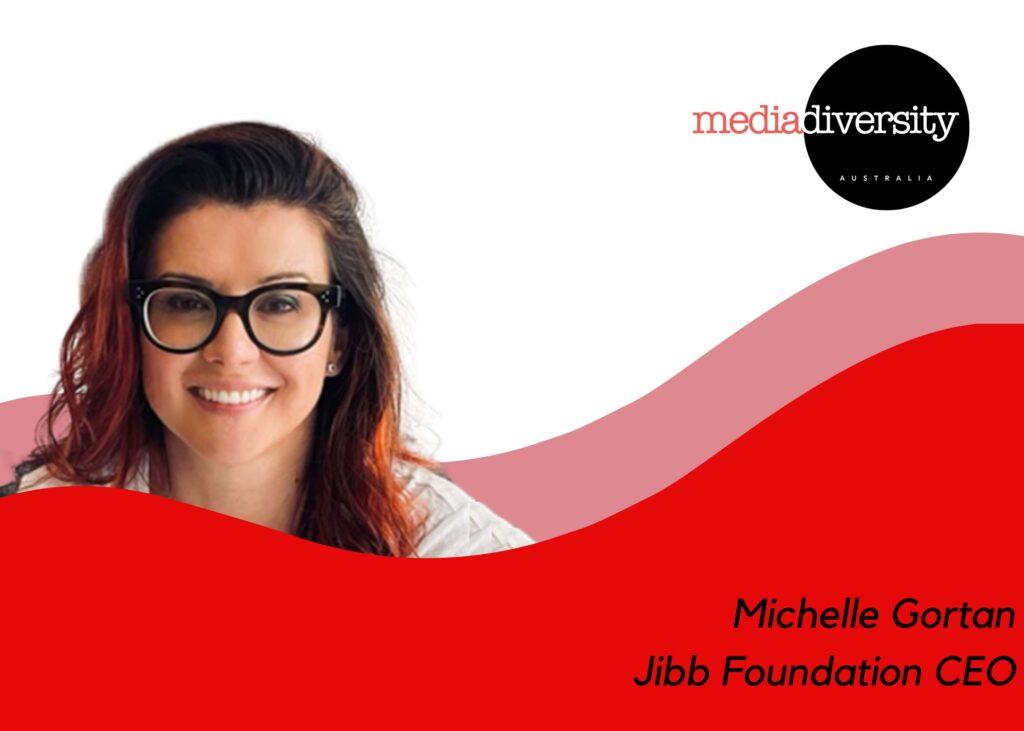
The Jibb Foundation is helping sustain Media Diversity Australia’s strategic growth and overall vision. Established in 2013, Jibb is the family foundation of historic media proprietor John B Fairfax AO and his wife, Libby Fairfax, with a mission to support organisations that strive to improve the equality of opportunity for others. We caught up with Michelle, the foundation’s manager, to hear more about why they supported MDA and why Australia urgently needs a more diverse media landscape.
The next few years are about supporting our new and long-standing partners with medium to long-term funding. Much of grant-making to date has been to fund salary costs. By providing stability of income for core costs, our partners can focus on attracting and keeping great people and, importantly, focus on getting the job done.
The commitment of MDA to removing the barriers for people of diverse backgrounds to enter media and journalism is challenging and important work, and the MDA team is passionate and ambitious about achieving that. Mariam (Veiszadeh) impressed me with her cool assessment of the problem MDA is trying to address, and I was equally impressed by her clarity and focus on how to address it. Naturally, the Fairfax family is deeply knowledgeable and committed to media and journalism. For them, interventions that support a high-quality and thriving media sector are of great interest. In their minds, MDA contributes solidly to creating and supporting such a sector.
It’s an ethical and civic responsibility. We live in one of the most multicultural countries in the world, and our institutions must reflect that. The media is crucial in informing and educating us and holding power to account. Every single part of our community should feel engaged and informed on the issues that affect them, and the media is one of the most powerful ways to achieve this. We also know that talent exists throughout our diverse communities. We must encourage and enable this talent to surface by directly addressing inequality and discrimination and unlocking opportunities whenever possible. We’ll all be better for it.
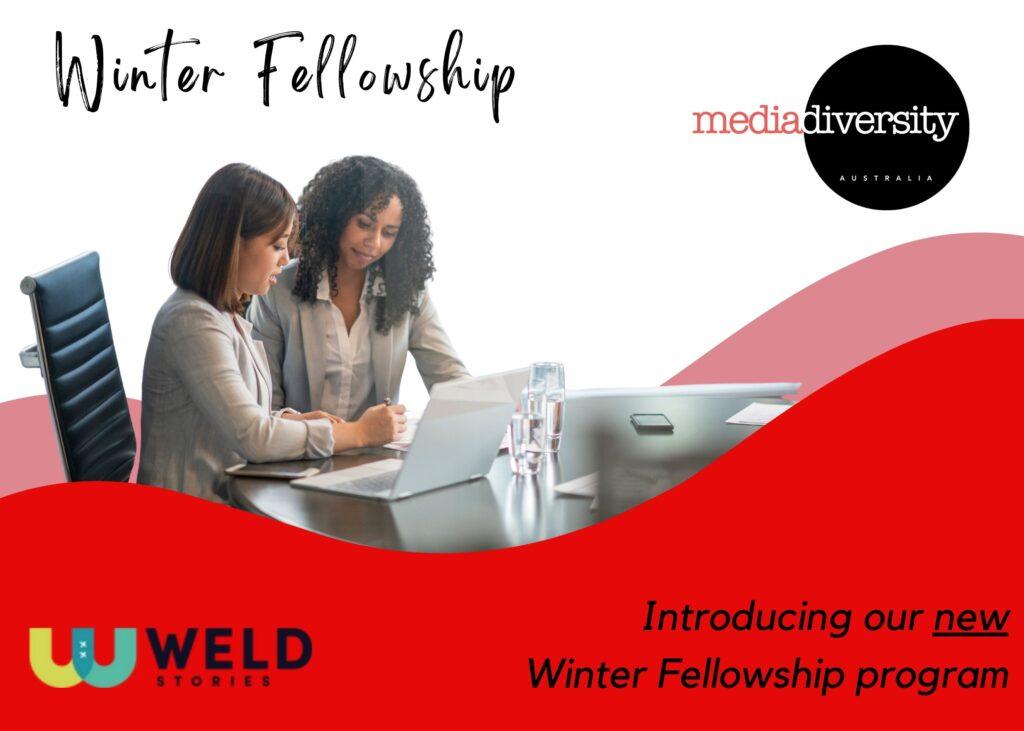
The Fellowship winner will be included in calls with Weld Stories clients, concept development, research, writing, editing, planning, pre-production, distribution strategy, briefing of designers, production, reviewing edits and delivery of assets.
They will also work on developing and creating vibrant and relevant stories for MDA’s social channels.
The winning candidate will have a strong sense of the news and current affairs, an understanding of multimedia storytelling (e.g. feature articles, videos and podcasts), and creative thinking to help drive original approaches to narratives.
Entrants must be Sydney-based and available for six weeks from May 8 to June 16. The winning candidate will be paid a weekly stipend of $1000. For your chance to win, enter now.
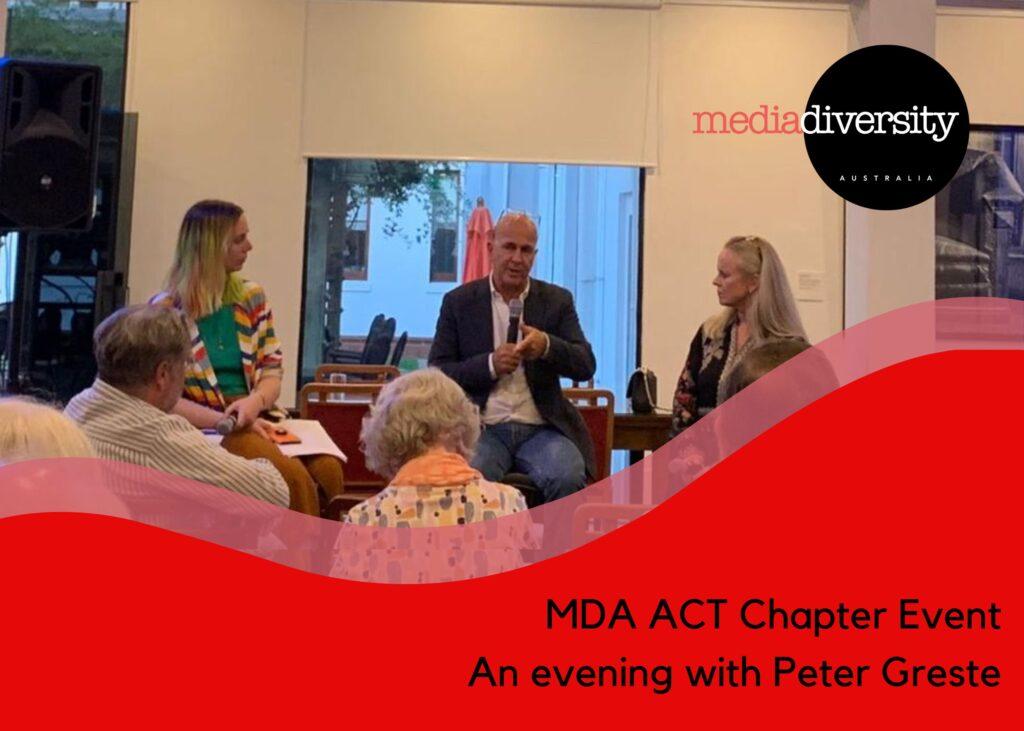
Our ACT Chapter proudly hosted a networking evening on Friday, February 24, featuring Professor Peter Greste at the Museum of Australian Democracy at Old Parliament House, Canberra in partnership with the MEAA.
Greste, an award-winning journalist, author and academic (Macquarie University), spent fifteen years with the BBC before he joined Al Jazeera as East Africa correspondent. In December 2013, whilst reporting for Al Jazeera, he was arrested in Egypt and charged with airing false news and terrorism offences. Within six months, he was found guilty under the country’s anti-terrorism laws and spent 400 days in prison before being released in February 2015.
Thanks to Jessica Swann-Jadwat and our ACT Chapter members for driving this event!
As a not-for-profit organisation, we rely on the help of our incredible volunteers. With your financial and volunteer support, we can continue to run programs to support culturally and linguistically diverse journalists, conduct agenda-setting research, run networking events, provide practical solutions for the media industry, and much more. If you would like to make a tax-deductible donation to support the vital work we do, please click here.
Founded by journalists (Isabel Lo and Antoinette Lattouf) in 2017, Media Diversity Australia (MDA) is a national not-for-profit organisation, working towards creating a media landscape that looks and sounds like Australia. We have expertise in delivering evidence-based research, bespoke programs, strategic memberships and partnerships that disrupt the status quo and pave pathways for diverse representation across Australian media.